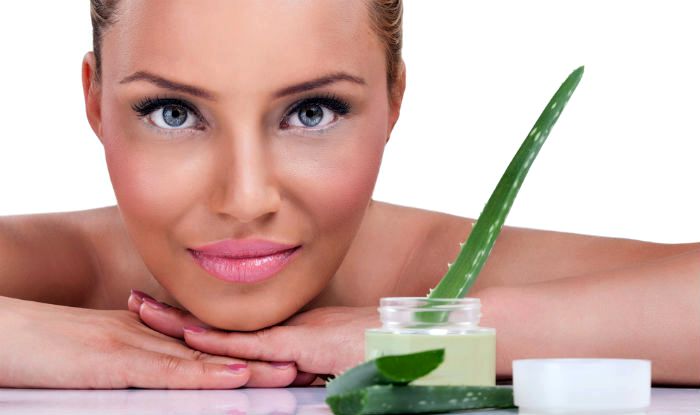If you’re looking for a natural way to soothe and hydrate your skin, you might be wondering if aloe vera is the answer. This succulent plant has been used for centuries to treat a variety of ailments, including burns, wounds, and skin irritations. But does it really live up to the hype when it comes to your skin?
The short answer is yes, aloe vera can be beneficial for your skin. It contains a variety of vitamins, minerals, and antioxidants that help to nourish and protect your skin from damage. It also has anti-inflammatory properties that can help to reduce redness and irritation, making it a popular ingredient in many skincare products. But as with any skincare ingredient, it’s important to understand how it works and whether it’s right for your skin type.
Understanding Aloe Vera
Aloe vera is a succulent plant that has been used for centuries for its medicinal properties. It is also known as Aloe barbadensis or Aloe barbadensis Miller. The plant is native to Africa, but it is now grown in many parts of the world, including the United States, Mexico, and the Caribbean.
The gel inside the aloe vera plant is what makes it so popular. The gel is rich in vitamins, minerals, and antioxidants, which can help soothe and heal the skin. Aloe vera gel has been used to treat a variety of skin conditions, including burns, cuts, and rashes.
One of the most well-known components of aloe vera is aloin. Aloin is a yellow-brown substance found in the latex of the aloe vera plant. It has been used as a laxative for centuries, but it can also cause skin irritation and should be avoided in topical products.
When using aloe vera for skin care, it is important to choose products that contain pure aloe vera gel. Some products may contain aloe vera extract or juice, which may not have the same benefits as pure aloe vera gel.
In summary, aloe vera is a versatile plant with many medicinal properties. Its gel can be used to soothe and heal the skin, but it is important to avoid products that contain aloin or other potentially harmful substances.
Aloe Vera and Skin Health
Aloe vera is a succulent plant known for its numerous health benefits, including its ability to improve skin health. It contains a variety of vitamins, minerals, enzymes, and polysaccharides that work together to promote healthy skin. In this section, we will explore the various ways in which aloe vera can benefit your skin.
Healing Properties
Aloe vera has been used for centuries to promote wound healing. Its gel contains compounds that help to reduce inflammation and promote tissue regeneration. It is particularly effective in treating minor burns, including sunburns, as well as second-degree burns. Aloe vera can also help to reduce scarring and promote faster healing of wounds.
Anti-Inflammatory and Antioxidant Benefits
Aloe vera has both anti-inflammatory and antioxidant properties, making it an excellent choice for those with inflammatory skin conditions. It can help to reduce redness and swelling associated with acne, psoriasis, and eczema. Additionally, its antioxidant properties can help to protect the skin from damage caused by free radicals.
Hydrating and Moisturizing Effects
Aloe vera is an excellent natural moisturizer that can help to hydrate and soothe dry, irritated skin. Its gel contains a variety of compounds that help to lock in moisture and prevent water loss from the skin. This makes it an ideal ingredient for those with dry or sensitive skin.
Treating Skin Conditions
Aloe vera has been shown to be effective in treating a variety of skin conditions, including acne, psoriasis, eczema, sunburns, cold sores, and skin ulcers. Its antibacterial and antifungal properties can help to reduce the risk of infection, while its anti-inflammatory properties can help to reduce redness and irritation.
Anti-Aging Benefits
Aloe vera can also help to reduce the signs of aging on the skin. It contains compounds that can help to boost collagen and elastin fibers, which are essential for maintaining skin elasticity and firmness. This can help to reduce the appearance of fine lines and wrinkles and slow down the aging process.
Skin Care Routine Inclusion
Aloe vera is a versatile ingredient that can be incorporated into your daily skin care routine. It can be found in a variety of products, including face creams, lotions, ointments, and topical gels. Look for products that contain high concentrations of aloe vera to maximize its benefits.
Aloe Vera for Hair and Scalp
In addition to its skin benefits, aloe vera can also be beneficial for your hair and scalp. Its hydrating and moisturizing effects can help to soothe a dry, itchy scalp and promote healthy hair growth. Look for hair products that contain aloe vera to reap its benefits.
Overall, aloe vera is a beneficial ingredient for improving skin health. Its healing, anti-inflammatory, and moisturizing properties make it an excellent choice for those with a variety of skin conditions. Consider incorporating aloe vera into your daily skin care routine to experience its benefits firsthand.
Safety and Side Effects of Aloe Vera
Aloe vera is generally considered safe when used topically or orally in appropriate doses. However, there are some potential risks and side effects that you should be aware of.
Topical Application Risks
When applied topically, aloe vera may cause skin sensitivity or irritation in some people. This can result in a rash, redness, or itching. If you experience any of these symptoms, stop using aloe vera and consult your healthcare provider.
Oral Consumption Risks
Oral consumption of aloe vera is not recommended for everyone. Aloe vera contains a compound called aloin, which can act as a laxative and cause diarrhea. It may also interact with certain medications, such as warfarin and diuretics, and affect blood sugar levels in people with diabetes.
Potential Allergic Reactions
Some people may be sensitive to aloe vera and experience an allergic reaction. This can result in a rash or other skin irritation. If you have a known sensitivity to latex, you may also be more likely to have an allergic reaction to aloe vera.
Possible Cancer Risk
There is some concern that aloe vera may increase the risk of cancer, particularly when consumed orally. However, more research is needed to fully understand this potential risk.
Overall, aloe vera is generally safe when used appropriately. However, if you experience any side effects or have concerns about using aloe vera, consult your healthcare provider.
Conclusion
In conclusion, aloe vera can have many benefits for your skin. It has been shown to have anti-inflammatory and antioxidant properties, which can help to reduce redness, irritation, and signs of aging. Aloe vera can also help to moisturize and soothe the skin, making it a great choice for those with dry or sensitive skin.
However, it is important to note that aloe vera is not a miracle cure for all skin problems. While it can be helpful for some people, it may not work for everyone. Additionally, some people may be allergic to aloe vera, so it is important to do a patch test before using it on your skin.
Overall, if you are looking for a natural way to improve the health of your skin, aloe vera is definitely worth considering. Just be sure to talk to your dermatologist if you have any concerns or questions about using it on your skin.




